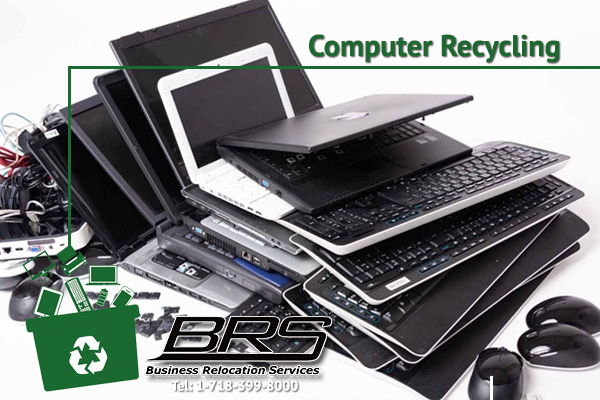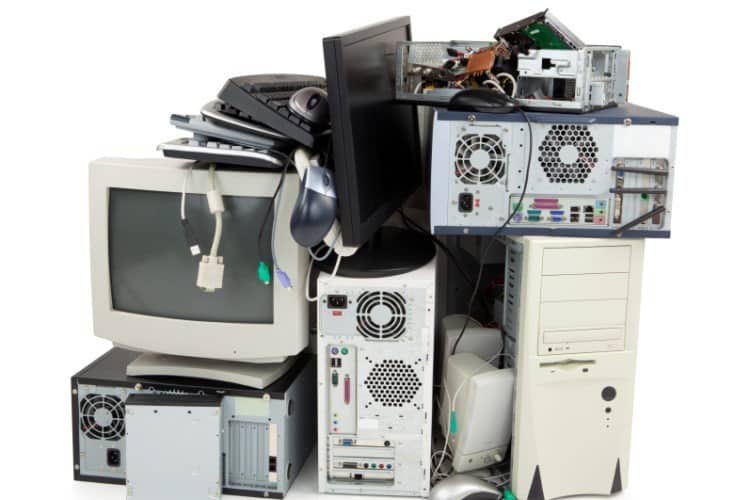Sustainable Solutions: Accept Eco-Friendly Computer Recycling Solutions
Sustainable Solutions: Accept Eco-Friendly Computer Recycling Solutions
Blog Article
Sustainable IT Solutions: Trustworthy Computer System Recycling Services
As innovation proceeds to progress at a quick pace, the issue of electronic waste, or e-waste, has actually become a pushing worry for both companies and individuals alike. The inappropriate disposal of computers and other electronic tools not just contributes to ecological deterioration, yet additionally presents substantial dangers to human health and wellness. Due to this, the need for reliable computer system reusing services has actually never ever been more critical. In this discussion, we will certainly explore the ecological influence of e-waste, the benefits of liable computer system recycling, how to choose a trustworthy recycling service, the recycling process for computer systems and digital tools, and the role of federal government policies in e-waste management. Join us as we discover the sustainable IT services that can assist us browse the complexities of digital waste in a reputable and responsible way.
The Ecological Effect of E-Waste
The inappropriate disposal of electronic waste, generally referred to as e-waste, has significant environmental implications. E-waste describes discarded electronic devices such as televisions, computer systems, and mobile phones (computer recycling). These tools include unsafe materials such as lead, mercury, cadmium, and brominated flame retardants, which can be hazardous to both human health and the environment otherwise correctly taken care of
When e-waste is incorrectly taken care of, it often ends up in landfills or is incinerated, launching hazardous substances right into the water, air, and dirt. The release of these unsafe products can infect groundwater, contaminate the air, and add to soil destruction, posing major health threats to close-by communities and ecosystems.
Furthermore, the inappropriate disposal of e-waste likewise adds to the exhaustion of natural sources. computer recycling. Several digital tools have valuable metals like gold, silver, and copper that can be recouped and recycled if properly reused. However, when e-waste is not recycled, these valuable sources are shed, and the demand for new resources boosts, leading to enhanced mining tasks and further environmental degradation.
To mitigate the ecological impact of e-waste, appropriate recycling and disposal approaches have to be used. This includes the responsible collection, taking down, and recycling of digital tools to recoup beneficial materials and make certain the secure administration of hazardous compounds. Executing effective e-waste management practices is important to safeguard the environment, save resources, and promote a sustainable future.

Advantages of Responsible Computer System Recycling
Effectively recycling computers supplies a wide variety of advantages, consisting of ecological conservation and resource preservation. Liable computer recycling not just assists avoid digital waste from ending up in land fills, but it additionally decreases the requirement for basic materials and power in the production of new tools.
One of the most significant advantages of accountable computer system recycling is the conservation of the atmosphere. When electronic waste is poorly thrown away, it can release unsafe compounds such as lead, mercury, and cadmium right into the dirt and water, posturing a risk to ecosystems and human wellness. By reusing computer systems, these hazardous products can be safely drawn out and gotten rid of, minimizing the danger of air pollution.
One more benefit is source preservation. Computer systems include beneficial materials like gold, copper, light weight aluminum, and silver, which can be recuperated and recycled via reusing processes. By extracting and reusing these materials, the need for extracting brand-new resources is minimized, saving natural deposits and reducing the environmental impact of resource extraction.
Moreover, responsible computer recycling aids to minimize power intake. Manufacturing brand-new computer systems requires a significant amount of energy, from the extraction of resources to the assembly process. By reusing computer systems and recycling their components, the energy-intensive manufacturing process can be prevented, leading to a decrease in greenhouse gas exhausts and an extra lasting use power resources.
How to Select a Trustworthy Computer System Recycling Solution
When choosing a computer recycling service, it is essential to consider a few key variables to guarantee that you select a trustworthy and trustworthy service provider. It is crucial to verify if the recycling solution complies with appropriate environmental laws and methods. A reputable provider will certainly have accreditations and certifications that show their commitment to responsible recycling. Seek certifications such as R2 (Accountable Recycling) or e-Stewards, which make certain that the recycling process satisfies strict criteria for ecological security and information safety and security. Secondly, examine if the solution supplies protected information damage. Data protection is an important worry when reusing computer systems, as sensitive information saved on old gadgets can be at risk to theft or abuse. A trustworthy recycling solution should have safe information destruction methods in position, such as information wiping or physical damage of storage space devices. Furthermore, consider the solution's performance history and online reputation. Search for reviews or testimonials from previous consumers to gauge their degree of customer contentment and dependability. Think about the service's openness and responsibility. A reliable provider should have the ability to provide thorough details concerning their recycling process, consisting of exactly how they deal with dangerous products and make sure appropriate disposal. By thinking about these variables, you can select a computer recycling solution that is honest, trustworthy, and environmentally responsible.
The Recycling Process for Computers and Digital Devices
To ensure liable disposal and lessen ecological influence, recognizing the recycling procedure for computer systems and electronic tools is essential when picking a trustworthy recycling service. The recycling procedure for these gadgets generally involves a number of phases.
First of all, the tools are collected from people, businesses, or drop-off factors. This collection procedure might involve transportation logistics and protected dealing with to safeguard the sensitive data included within the tools. Once accumulated, the gadgets are arranged based on their type, such as desktop computers, laptop computers, or smartphones.
After arranging, the tools undergo a complete information devastation process to guarantee that any individual or sensitive information is completely removed. This action is crucial to protect the personal privacy and safety and security of organizations and individuals. Data damage techniques might consist of wiping, link degaussing, or physical devastation of the storage space media.
Next, the tools are taken apart right into their private elements. This enables the splitting up of different products, such as plastics, metals, and circuit boards. These products are after that sent out to specialized recycling centers for more handling.
The recycling centers make use of various techniques to extract important materials from the electronic waste. These materials can be reused or repurposed in the manufacturing of new products. The remaining waste is thrown away in an environmentally accountable way, sticking to regulative guidelines.
The Function of Government Regulations in E-Waste Management
Federal government laws play an essential role in the effective monitoring of e-waste. With the continual development of the electronic devices market and the enhancing problem for ecological sustainability, the requirement for correct disposal and recycling of digital waste has come to be much more obvious. Federal government guidelines aid to ensure that e-waste is managed in a accountable and sustainable manner.
Among the main roles of federal government regulations is to establish criteria and guidelines for e-waste administration. These regulations define the appropriate methods for collection, transport, and recycling of digital waste. By developing these requirements, governments can make certain that e-waste is taken care of in a means that reduces its effect on the setting and human health.
Federal government policies also play an important function in imposing the correct disposal of electronic waste. They require sellers and suppliers to take obligation for the items they produce and offer. This includes implementing take-back programs, where makers are in charge of collecting and reusing electronic waste from consumers. These guidelines aid to shift the burden of e-waste administration from the private customer to the sector, making certain that electronic waste is managed in a more lasting manner.

Final Thought
To conclude, it is critical to think about the environmental impact of e-waste and choose a credible computer system reusing solution to properly dispose of electronic devices. By following federal government regulations and taking part in correct reusing try here procedures, we can mitigate the negative effects of e-waste on the environment and advertise an extra sustainable future.
In this discussion, we will certainly check out the environmental impact of e-waste, the click over here now advantages of responsible computer system recycling, just how to pick a reliable recycling solution, the recycling procedure for computers and digital tools, and the duty of government policies in e-waste administration. Computer systems have important materials like gold, aluminum, copper, and silver, which can be recouped and recycled with recycling processes.Additionally, accountable computer reusing helps to reduce energy consumption. Information security is an important concern when recycling computers, as delicate info kept on old devices can be at risk to burglary or misuse. By taking into consideration these factors, you can pick a computer system reusing service that is ethical, trustworthy, and environmentally responsible.
Report this page